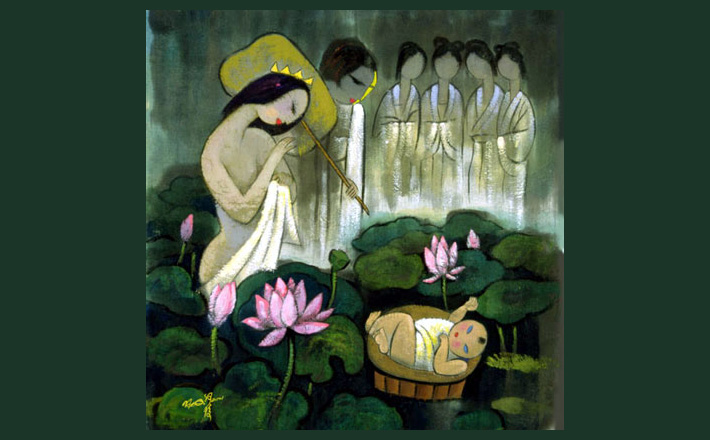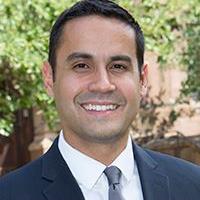Commentary on Matthew 16:13-20
“But who do you say that I am?”
Though this question is posed to Jesus’ narrative audience, his disciples, it is a powerful query upon us as well today. Who do we say Jesus is? And the question is even more resonant if we embrace the fullness of what it means to “speak” or “say” in this context. It just may be that the lives we lead in light of our hopes in the Messiah are just as critical as that which we confess with words, no matter how true or elegant. That is, as we answer this life-altering question, the shape of our lives may be as important as the words our lips voice.
Questions of identity are at the center of the Gospels. In both narrative accounts and explicit identifications, the Gospels weave a number of portraits of Jesus. In doing so, however, the Gospel writers are not just interested in correctly defining who Jesus is but also in shaping a community molded in light of his actions and teachings. And so these questions of identity are not just a matter of definition but of formation, not just doctrine but discipleship.
In this week’s pericope, these questions of Jesus’ identity are stated as sharply as any other account of Jesus’ ministry. Gathered in Caesarea Philippi, Jesus wonders aloud what the crowds are saying about him but more importantly what the disciples think. It’s another way of saying, “Why are you following me? Why have you left everything you know? Who do you say that I am?” And so it might be worthwhile to ask the faithful today a similar question. Why are you here? Why have you chosen to follow this Galilean peasant? Why are you on this path?
We will recall that this narrative of discovery is particularly crucial in Mark’s account (8:27-38). In Mark, this scene is the critical narrative hinge upon which the whole story turns. With Peter’s confession, the story makes a dramatic shift towards the cross. In Matthew’s account, the story remains important though perhaps not as central as Mark’s version. It remains critical because the question of Jesus’ identity drives so much of the story. For instance, questions of identity are precisely why Matthew begins with a complex, fascinating, structured genealogy.
Genealogies are not just simple accounts of past ancestors. They are ways that we construct identity, ways in which we relate to our past. Jesus’ identity is inextricably linked by Matthew’s genealogy with Abraham and David, with exile and deliverance, with kings and extraordinarily faithful women. So also the birth narrative places Jesus in distinguished company. The threats over his young life, his family’s exile into Egypt, and their eventual return resonates with Moses’ own story. In short, for Matthew, identity is not just about who you are but who is around you, who is accompanying you, who has come before you.
The company Jesus keeps in this scene is thus instructive. When Jesus polls his disciples about public opinion, they recount that many think he is John the Baptist or Elijah or Jeremiah or another prophet risen anew. The crowds have gotten an important part of Jesus’ identity exactly right. His ministry is not a diversion in the narratives of God’s interactions with God’s people. In many ways, Jesus is not a detour on God’s plans. Instead, Jesus belongs in a long line of faithful servants of God, prophets willing to stake their lives for the sake of God’s people.
In indirect ways, he also has another set of company. The location of this event in Caesarea Philippi is no accident. Caesar’s name and the city he built hovers over the scene. Jesus’ identity is composed in the context of God’s interaction with Israel as well as the regnant power of Jesus’ own time. When Peter declares Jesus to be the Messiah or the anointed one of God, images of political independence are certainly in the air.
After all, anointing is precisely how Israel’s kings were inaugurated into service. Behind Peter’s hopes is a political expectation that Rome would no longer wield its swords, that Rome would cede authority to the one true power of the universe. And when Jesus starts preaching about a kingdom of heaven which keys he has given to the faithful, you can only imagine the excitement these disciples would have felt, an excitement Jesus will reshape and redirect next week.
Do we share in this excitement today? Do we see the ways in which “empires” today still rule over us? Perhaps they no longer take the shape of the ancient empire of Rome with its armies and political structure, but are there largely invisible forces constantly deceiving us about our worth and place in the world? Are such empires waging war against our humanity? Are there still empires in new dress crushing the oppressed all around us? What would it mean to call Jesus the Messiah in such a context as ours?
The power of Peter’s confession is only enhanced as the passage comes to a close. Here, Jesus famously grants Peter a new name (in this case, “The Rock,” but not the wrestler), which is also a symbolic anchor for the “church.” There are, of course, generation of debates revolving around the identification of “the rock” upon which Jesus will build the church. What may be even more telling is the power that comes in the wake of confessing Jesus as Messiah and living into this world-changing reality. A synchronicity emerges between what happens here on earth and what happens in the heavens. There is power in faith, a power that resonates into the highest heavens.
The question for us is how we might see that power working in our midst. Our tendency, I think, is to look to the spectacular and the stunning to see God’s power at work. But what if God’s power is more subtle than such fireworks? What if the simple assertion that Jesus is the Messiah is more powerful but quieter than the clanging gongs of empire?
It is telling that this word “church” is present here at all. After all, while the term occurs regularly in the rest of the New Testament, Matthew 16:18 and 18:17 are the only occurrences we found in the Gospels. So, exhort your hearers to look around themselves in their churches to see things being bound and others being loosened. Where do they see freedom and liberation emerging, even in small, seemingly insignificant ways? How are they as a community binding the forces of death that seek to engulf us? In every thoughtful gesture, in every supportive word, in every prophetic denunciation of injustice, in every meal cooked, in every day of work, we might just catch a glimpse of the power Jesus promised here.
In the end, a life of faithful service may be the best answer to that awe-inspiring question: Who do you say that I am?


August 24, 2014